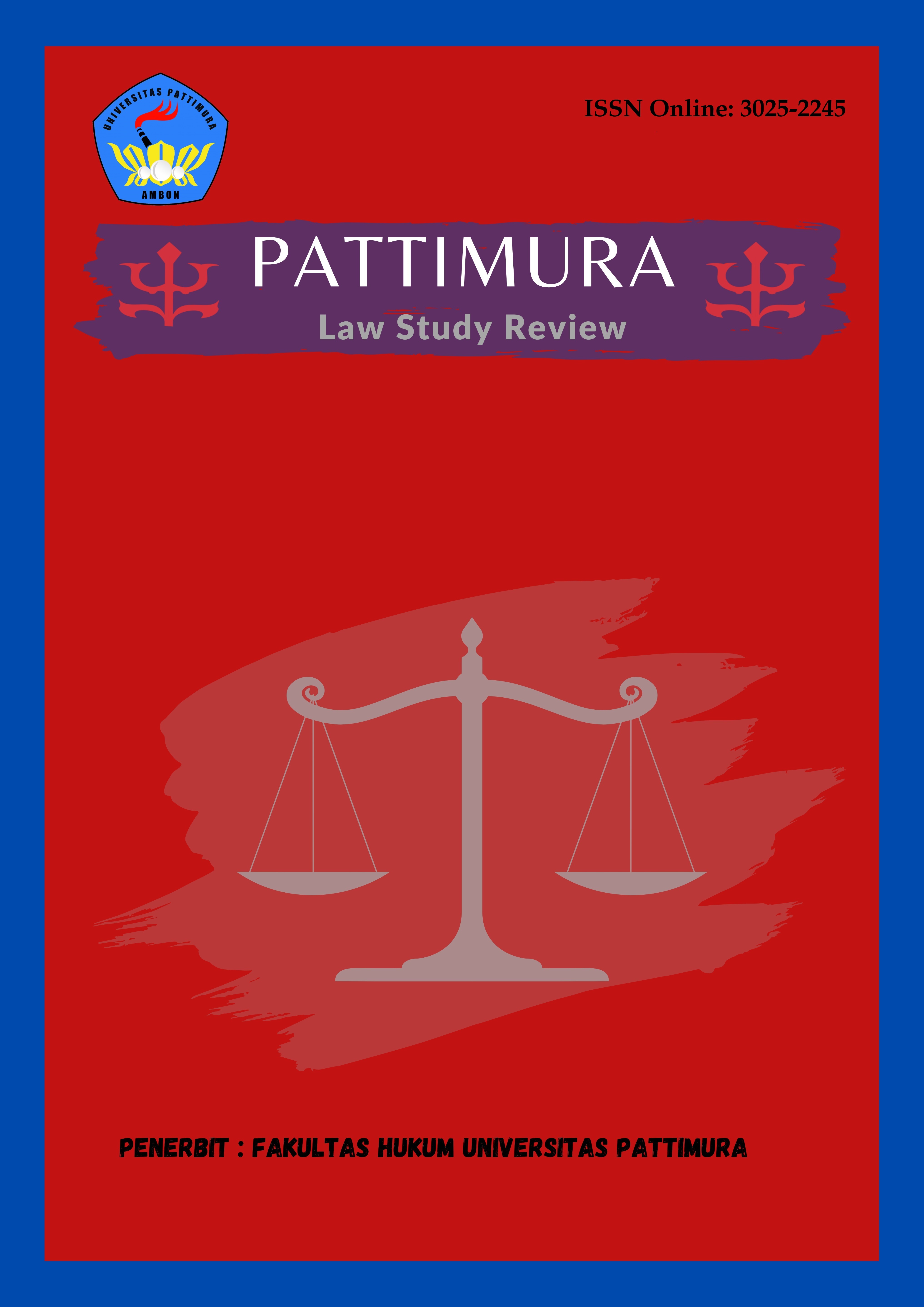Akibat Hukum Wanprestasi Debitur Dalam Transaksi Elektronik Melalui Fitur Paylater Pada Aplikasi Shopee
Abstract
The life of society in meeting daily needs has undergone changes due to advancements in technology and science. To realize this development, it is regulated based on Law Number 1 of 2024 concerning the Second Amendment to Law Number 11 of 2008 on Electronic Information and Transactions as well as Articles 1313, 1320, 1338, 1243 of the Civil Code as a legal umbrella for the dynamics of society in conducting transactions and economic activities. One of the developments in community life, particularly in trade to meet economic needs, is the introduction of the PayLater feature on the Shopee application. This application facilitates users in making online purchases. In its use, this feature certainly has terms and conditions that bind every consumer credit user. One of the users of consumer credit is an actor with the initial 'G' who engaged in the purchasing process through the PayLater feature. This actor purchased an item at a higher price, making it impossible for them to pay the bill after the due date. This issue has caused the PayLater facility users to default by not following the procedures set forth by Shopee PayLater. This action has resulted in losses that can be claimed by Shopee PayLater. The type of research used is normative legal research, which is conducted by examining the principles and concepts of law, as well as statutory regulations. The problem approach used is the legislative approach and the conceptual approach. The sources of legal materials are primary, secondary, and tertiary. The procedure for collecting legal materials used is library data. The procedures for processing and analyzing legal materials used are primary, secondary, and tertiary legal materials, which are analyzed in this research. The results of this study indicate that the legal consequences of defaulting actions taken by the debtor result in liability, specifically the debtor's accountability based on fault to the creditor to compensate for the losses suffered by Shopee PayLater. In resolving default cases between the debtor and Shopee PayLater, the resolution can be done through both non-litigation and litigation. Non-litigation will provide convenience for the debtor as it offers cost efficiency compared to litigation.
Downloads
References
Buku
Ade Maman Suherman. Aspek Hukum Dalam Ekonomi Global. Jakarta: Ghalia Indonesia, 2004
Peter Mahmud Marzuki, Penelitian Hukum., Prenada Media Group, Edisi Pertama, Cetakan Ke Empat, Jakarta, 2008
----------------------------, Penelitian Hukum, Kencana, Jakarta, 2009,
Jurnal dan Lain-lain
Alfhica Rezita Sari, Perlindungan Hukum Bagi Pemberi Pinjaman Dalam Penyelenggaraan Financial Technology Ber-basis Peer To Peer Lending Di Indonesia, ( Skripsi Fakultas Hukum Universitas Islam Indonesia), Yogyakarta, 2018
Binus Business School, E-Commerce – Business Creation, https://bbs.binus.ac.id/business-creation/2020/04/e-commerce/, 2020
Monica, Marinda Agestia. “Analisis hukum Islam terhadap pinjaman uang elektronik Shopee Pay Later pada e-commerce." PhD diss., UIN Sunan Ampel Surabaya, 2019
Nancy Silvana Haliwela. “Pertanggungjawaban debitur terhadap kreditur pada perjanjian kredit dengan jaminan fidusia.” PATTIMURA Law Study Revieuw 1.1, 2023
Pusat Pembantuan Shopee Paylater, Syarat dan Ketentuan Layanan Shopee Paylater Bagi Penerima Pinjaman, Sea Group, 2020, https://help.shopee.co.id/portal/article/77531 diakses 18 Oktober 2024
Otniel Yustisia Kristian, Perlindungan Hukum Pengguna Layanan Fintech P2P Lending Dari Tindak Pidana Ekonomi Dan Terhadap Penyedia Layanan Fintech P2P Lending Ilegal.
Copyright (c) 2025 Chrysilla Angelica Sahuleka, Nancy Silvana Haliwela, Marselo Valentino Giovani Pariela (Author)

This work is licensed under a Creative Commons Attribution-NonCommercial 4.0 International License.
Authors who publish their manuscripts in this Journal agree to the following conditions:
- The copyright in each article belongs to the author, as well as the right to patent.
- Authors are able to enter into separate, additional contractual arrangements for the non-exclusive distribution of the journal's published version of the work (e.g., post it to an institutional repository or publish it in a book), with an acknowledgment of its initial publication in this journal.
- Authors are permitted and encouraged to post their work online (e.g., in institutional repositories or on their website) prior to and during the submission process, as it can lead to productive exchanges, as well as earlier and greater citation of published work.
- Authors have the right to self-archiving of the article (Author Self-Archiving Policy)













